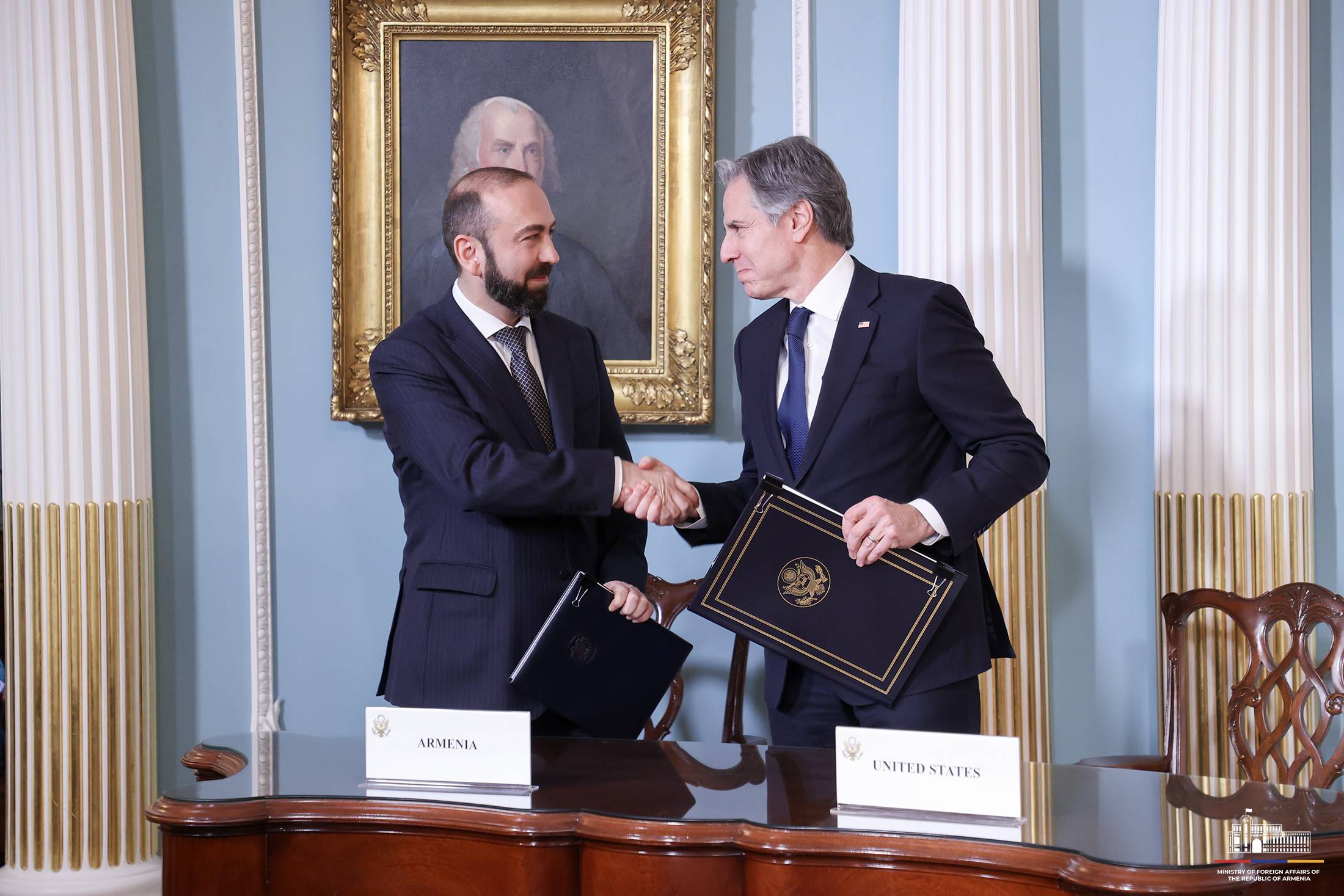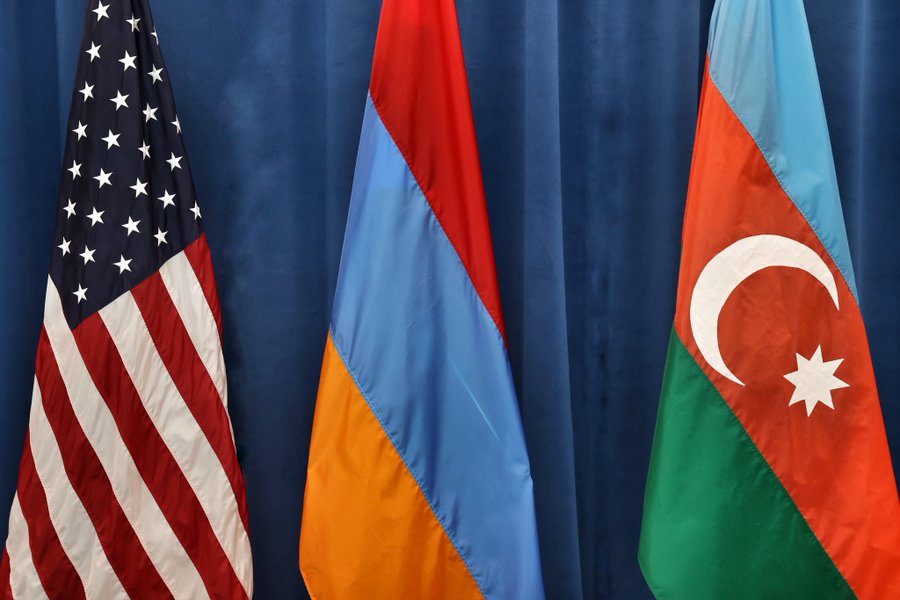'If Trump demands it, Baku will sign peace deal with Yerevan'- opinion of US-based analyst
Trump’s influence on Aliyev’s decisions
Donald Trump has spoken for the first time since taking office about the Armenian-American Charter of Strategic Partnership, which Yerevan signed during the final days of the previous US administration.
“We look forward to continuing our strategic partnership with Armenia and maintaining regional stability, while striving for lasting prosperity and security,” Trump said in his message of 24 April marking Armenian Genocide Remembrance Day.
Political analyst and University of Nevada professor Nerses Kopalyan noted that many observed Trump’s use of the term Mets Eghern (“Great Crime”) instead of the term “Armenian Genocide.” However, he believes something else is more significant: namely, the reference to the Armenian-American strategic partnership document. In his view, this highlights that “for Washington, relations between Armenia and the US form a distinct and substantial category.”
In an interview with an Armenian publication, Kopalyan shared his views on the context of the Armenia-Azerbaijan peace treaty. He stressed that peace in the region serves US interests and that the new administration has clear objectives to pursue there.
“Armenia will become a foothold for the US in the Caucasus. The likelihood that the US will start putting pressure on Azerbaijan is growing.”
- Will Trump shift focus from Ukraine to South Caucasus? View from Yerevan
- ‘Moscow won’t be able to settle comfortably between Yerevan and Baku’: Pashinyan–Rubio conversation
- Opinion on possible Trump-Putin deal: ‘Armenia has nothing to worry about’
- ‘Trump’s rejection of isolationism could weaken Russia’s influence’- opinion from Yerevan
US-Armenia Strategic Partnership Charter yet to be implemented
In January 2025, Armenian Foreign Minister Ararat Mirzoyan and former US Secretary of State Antony Blinken signed the US-Armenia Strategic Partnership Charter in Washington.
“A strong, independent, sovereign, and democratic Armenia, capable of defending its sovereignty, territorial integrity, and the inviolability of its internationally recognised borders, is crucial for lasting regional security and prosperity,” the document states.
Under the charter, the two sides pledged to increase bilateral trade and investment, boost energy production in Armenia, and diversify energy supply sources.
However, what mattered most to Armenian society was the document’s commitment to “expanding cooperation programmes in the field of defence and security” between Yerevan and Washington. More specifically, this includes:
- supporting the Armenian Armed Forces through professional military training,
- enhancing the operational interoperability of Armenia’s army,
- strengthening its defence capabilities,
- and sending a group of customs and border security specialists to Armenia.
As for the latter point, it has not yet been implemented. In light of Trump’s recent message, experts in Armenia have once again raised the issue.
Expert commentary
Political analyst Nerses Kopalyan stresses: “The South Caucasus is no longer what it was in the 1990s or 2000s.” Back then, he recalls, Russia held decisive influence in the region. It acted as the hegemon, while the “small, weak countries” could not resolve their internal problems, let alone regional ones.
The analyst is convinced that Russia will not be able to return to the region within the next ten years. He explains that Moscow will be preoccupied with issues in Ukraine and Central Asia.
At the same time, Kopalyan notes a “competition among major powers” for leadership in the Caucasus.
He recalls that some circles had predicted the “collapse of Armenia’s democratic system” after the new US administration came to power and withdrew from the South Caucasus:
“But nothing of the sort happened. On the contrary, amid instability, Yerevan managed to reduce existing risks and strengthen its ties with the US and the West. And the Trump administration, along with US institutions — particularly in the areas of security and foreign policy — made the decision that Armenia matters to them, that the region matters to them.”
Nerses Kopalyan also addressed the Armenian-Azerbaijani negotiations and the likelihood of a peace treaty being signed:
“After agreeing on all the provisions of the peace treaty with Yerevan, Baku tried to draw Washington’s attention to this fact. It was also attempting to resolve its problems with European Union countries. Aliyev realised that if he continued to be seen as a destructive player, he would gradually lose his diplomatic capital and levers of influence.”
According to the political analyst, Azerbaijan merely used the rhetoric of peace to address its diplomatic challenges.
Kopalyan recalls that after this initial step, the international community stated: “The next step must be signing the agreement.” It was then that Baku began setting preconditions and spreading disinformation about attacks on its territory. The political analyst explains this by saying that Aliyev has no real intention of signing a peace agreement.
In his view, Aliyev would only proceed if the United States demanded the signing and left him no alternative:
“There is one person in the world whom Aliyev fears — and that is Trump. If Trump says: ‘Since you reject my demand for peace, I will help Armenia rebuild,’ Aliyev will be forced to comply. His greatest fear is that Armenia will recover and gain the capacity to deter [military] threats.”
Regarding the European Union’s possible involvement in the negotiations, the analyst expects diplomatic and political — but not economic — pressure on Azerbaijan to sign the agreement:
“They are not ready to punish Baku. Especially now, when they need a ‘Plan B.’ After all, they still don’t know what US-EU relations will look like, nor how their energy security issues will be resolved.”





















